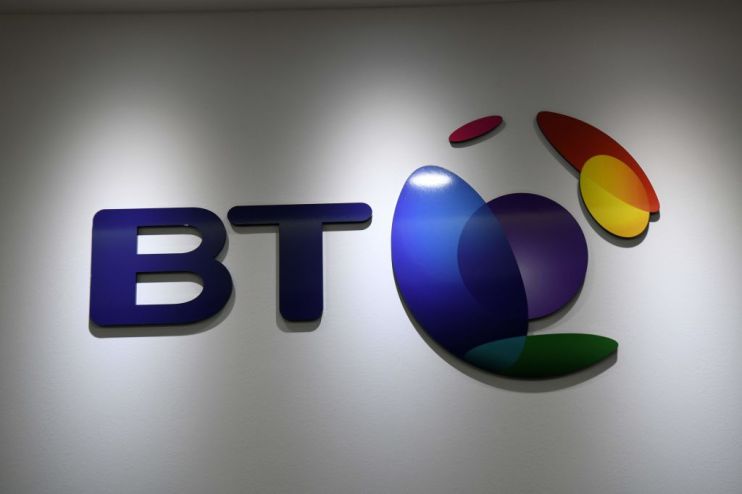BT scraps dividend as Covid-19 and full-fibre rollout hit profit

BT today scrapped its dividend as the coronavirus crisis and full-fibre broadband costs weighed on profit.
The telecoms giant said it had taken the “exceptionally difficult” decision to suspend the payout until 2022, when it will be reduced 50 per cent to 7.7p per share.
It came as BT posted a two per cent dip in revenue for the fourth quarter to £22.9bn, impacted by regulation, a decline in its legacy products and a string of divestments of non-core businesses.
Pre-tax profit also fell to £2.4bn from £2.6bn, largely due to charges of £95m linked to expected credit losses from Covid-19.
Shares in BT dropped more than nine per cent shortly after markets opened.
BT also said it would increase its targets for full-fibre rollout to 20m premises by the mid-2020s — up from its previous aim of 15m premises. The group will invest roughly £12bn in building the infrastructure.
BT, which has so far reached 2.6m premises, has called for regulatory support to meet its target. The firm is aiming to deliver a return of between 10 and 12 per cent on its broadband investment.
Michael Hewson, chief market analyst at CMC Markets, said: “Rising debt levels and increasing capex have raised questions about the sustainability of the dividend in the short term, so a dividend suspension until 2022 shouldn’t have come as too much of a surprise, even if it is disappointing for shareholders.”
The FTSE 100 firm said it had completed the first phase of its three-year turnaround plan, which has seen thousands of jobs cuts and office closures across the country.
BT has now extended the programme with the aim of reaching cost savings of £1bn by March 2023 and £2bn by March 2025, with a one-off cost of £1.3bn.
Chief executive Philip Jansen said the savings would be achieved by continuing to slim down the sprawling company, as well as by making further use of automation and artificial intelligence.
The take-up of technology means BT will reduce its headcount from the current total of 100,000 over the next five years, though it did not confirm how many roles would be removed.
While BT has seen surging demand for its broadband and mobile services as a result of the coronavirus lockdown, the pandemic has also impacted its business.
The telecoms behemoth has not furloughed any staff and has pledged that no employees will lose their job as a result of the crisis.
BT has also handed out a bonus to all workers, while boss Jansen will donate his £1.2m salary to charity for at least six months.
However, the company said it was taking short-term measures to reduce costs during the crisis, including reducing outsourcing and cancelling or delaying planned recruitment.
While BT said its full-fibre rollout plans had not been impacted by the pandemic, it had suffered attacks on its 5G masts due to “reckless conspiracy theories” that wrongly link the technology to the virus.
The firm, which holds the rights to dozens of Premier League and UEFA games, has also been hit by the cancellation of live sports. However, it said it expected the current Premier League season to be completed.
BT, which provided connections for the Nightingale hospital in London, said it would not provide any guidance for the full-year as a result of the crisis.
Jansen said the coronavirus crisis had “brought [BT’s] national leadership role into the sharpest focus in our company’s history”.
“Recent weeks have shown how vital it is to develop next generation digital infrastructure,” he said.
“That’s why we’ve set out a new target to invest around £12bn to build full fibre broadband for 20m premises right across the UK, including rural areas, by the mid to late-2020s.
“Combined with our leadership in 5G, this is a sound long-term investment that will drive the UK’s economy for years to come.”
The announcement came as Telefonica and Liberty Global confirmed a deal to merge O2 and Virgin Media into a new £31bn broadband and mobile group to rival BT.
Jansen said the deal was unsurprising and was a “sensible move” due to the need for consolidation in the telecoms industry.
“I think this will bring opportunity to the medium and long term,” he said. “Competition is good; it drives innovation.”